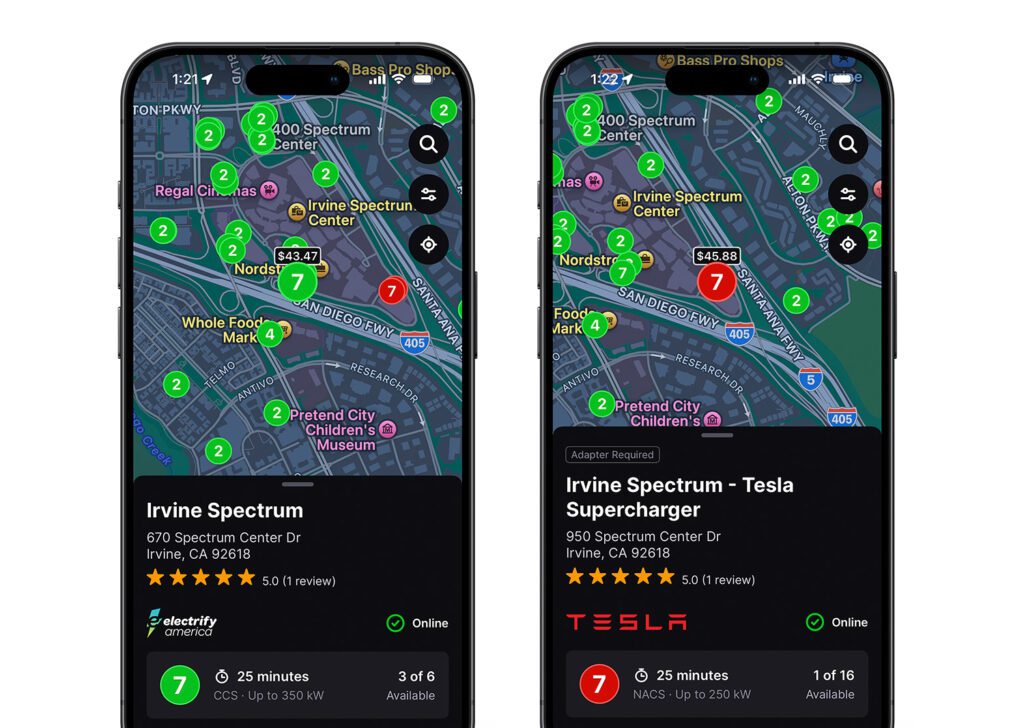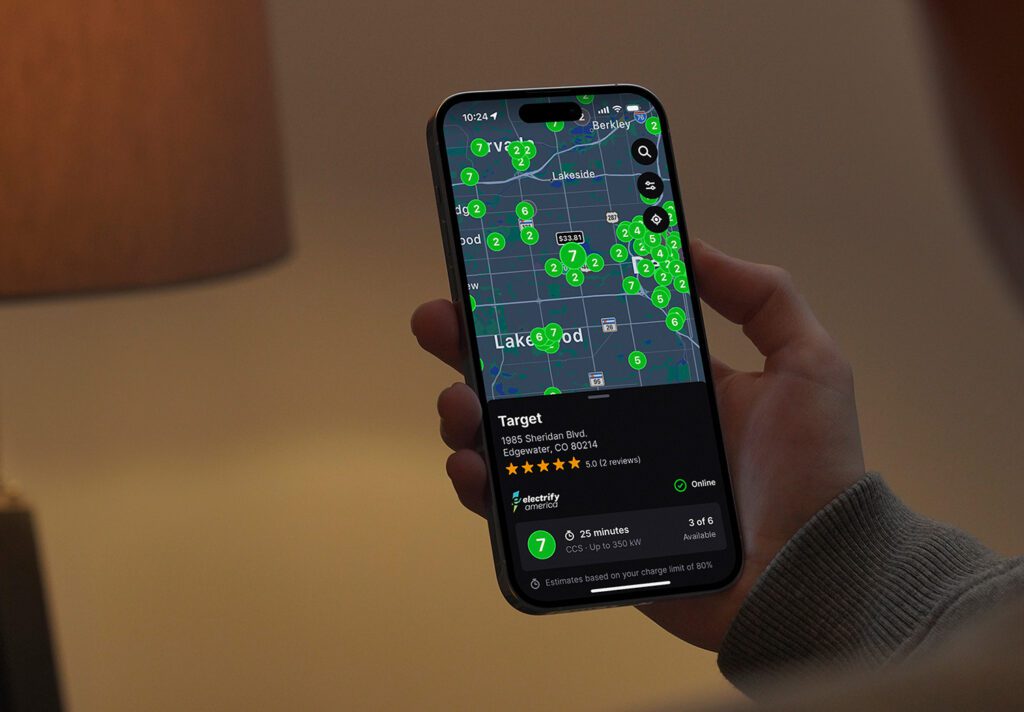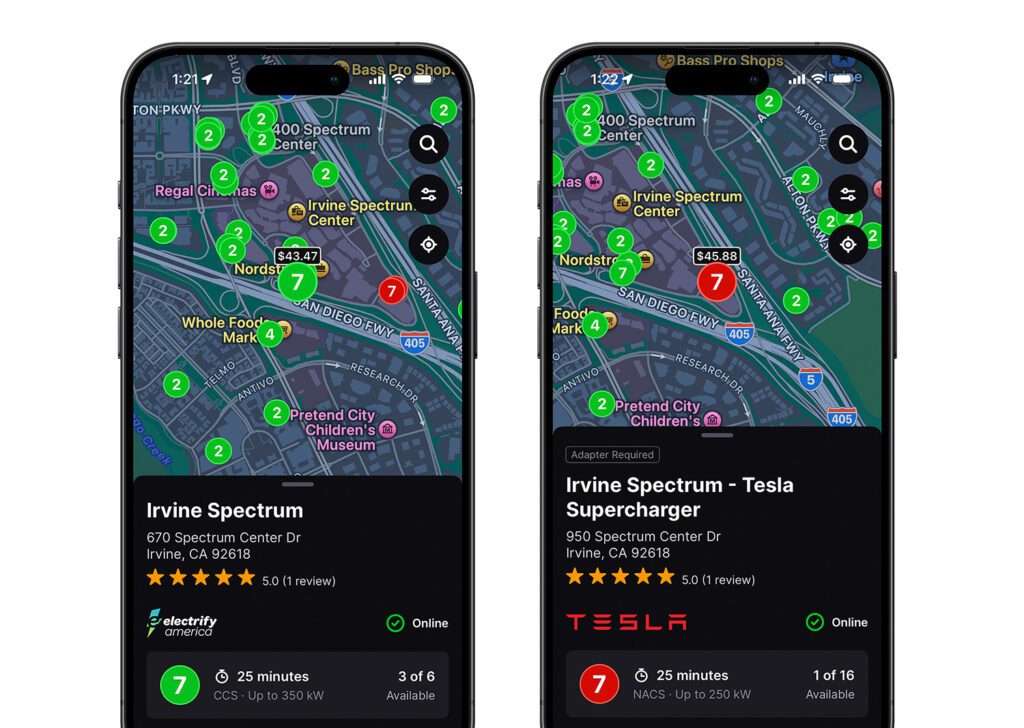You can find local gas prices on your phone or in the dash for every station; now one EV app has added real-time charging prices.
Some drivers go to absurd lengths, driving miles out of their way, to get the cheapest possible gasoline prices. They have access to that data online for most stations, wrapped into routing apps both in their phones and the onscreen navigation in some new vehicles.
EV charging prices? Not so much. At least, not until now. The Chargeway EV charging and routing app—which we’ve called the best electric-car idea you’ve never heard of—has now added real-time prices for more than half the charging stations in the US.
Available info includes not just the daily price per kilowatt-hour, but also variable pricing when it’s been implemented. Tesla was a pioneer in that practice, largely to alleviate congestion at its most popular charging sites, but the practice is becoming more frequent among charging networks, both to balance load from EV drivers who have the ability to decide when to charge and to offset electric-utility demand fees at times of highest usage.


Subscribers to the app’s Chargeway Plus tier see charge prices per kWh next to the station pin, along with an option to have the app calculate an estimated total cost to charge. That will vary, of course, with time of day, the charge limit they set in the app, and their car’s current state of battery charge, which they can enter before looking at pricing.
EV drivers for whom charge pricing is a major consideration can simply tap one site after another to compare their cost-to-charge totals at that moment. The app compensates for changes in time zones as users travel laterally across the US.
Massive data integration
Real-time pricing was a big project that took a long time to implement, said Chargeway founder and CEO Matt Teske, who spoke to Charged before the update’s official launch at the Electrify Expo event outside New York City in mid-October. And it’s the latest addition and next step for the Chargeway app, following the launch of its 2.0 version two years ago, which added real-time charging station status.
The company uses “multiple data sources,” Teske said, including “catalog research”—what a company says it charges in each state—and a certain amount of actual site testing.
The price shown is the price at the time the user clicks on it; the app doesn’t presently compensate for changes between “now” and when an EV may arrive. Chargeway found most test users looked at charging alternatives only within a 5- to 10-mile radius, meaning it would be the unlucky user who covered that distance only to find pricing had changed.
While the new feature is now available for more than half of US charging sites, Teske says it should hit 70 percent by the end of the year.
Not as well-known or as widely distributed as Plugshare or A Better Route Planner (ABRP), in our view, Chargeway is among the most graphically intuitive and best-attuned to EV drivers’ needs. It has more than 100,000 users, of whom a small percentage are presently Chargeway Plus subscribers. It’s also now the only independently owned EV charging/routing app. Rivian bought ABRP in June 2023, and charging network EVgo has owned Plugshare since July 2021.
Pricing; the next frontier
An increasing number of EV makers now offer some semblance of Tesla-style routing and charging software inside their dashboard navigation systems. More of them now differentiate among DC fast-charging and slower Level 2 sites, though the graphic presentation and resulting comprehensibility of that data varies considerably. A few have real-time availability data for some stations. The next frontier: What do I have to pay?
As Teske notes, “With one tap, drivers can easily see what we in the industry know the public must learn: Can I connect my car here? How long will charging take? How many chargers are available? And how much will my session cost?”
At least, that is, unless or until EV charging prices become truly dynamic, rising slightly with each new vehicle after a threshold is crossed, to ensure open slots for drivers willing to pay almost any rate to charge there. Whether that happens—it’s certainly not how gasoline prices work—remains to be seen. Will the model for EV charging become gas prices, or airline seats?
The latest version of the app, incorporating the new pricing features for Chargeway Plus users, is available for download in both the Google Play Store and iOS App Store.
Source: Chargeway
